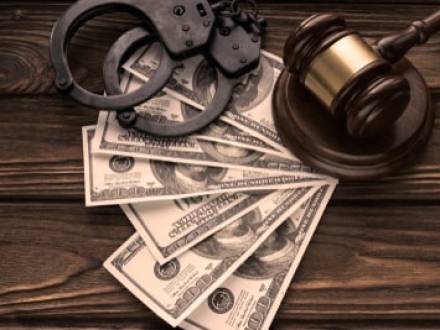The Difference Between Theft and Embezzlement
 Theft and embezzlement are two distinct federal offenses, but understanding the difference between them can be difficult. These crimes are closely related, as both involve taking money or property that does not belong to you. Most people think of embezzlement as little more than theft from an employer or an organization you volunteer for, but this is not accurate. It is possible to commit simple theft against the company or organization you are doing paid or unpaid work for. Embezzlement is more complicated than that. To embezzle, you must have had rightful access to the funds but wrongfully taken them for yourself instead of using them for their intended purpose. Embezzlement is generally more serious than theft, as it involves a breach of trust. If you have been accused of embezzlement, you need a knowledgeable Dallas, TX federal white-collar crimes attorney.
Theft and embezzlement are two distinct federal offenses, but understanding the difference between them can be difficult. These crimes are closely related, as both involve taking money or property that does not belong to you. Most people think of embezzlement as little more than theft from an employer or an organization you volunteer for, but this is not accurate. It is possible to commit simple theft against the company or organization you are doing paid or unpaid work for. Embezzlement is more complicated than that. To embezzle, you must have had rightful access to the funds but wrongfully taken them for yourself instead of using them for their intended purpose. Embezzlement is generally more serious than theft, as it involves a breach of trust. If you have been accused of embezzlement, you need a knowledgeable Dallas, TX federal white-collar crimes attorney.
You Must Have Been Trusted to Handle Another’s Funds to Embezzle
If you were never supposed to have access to the funds you took, you have only committed theft, not embezzlement. For example, say you do volunteer work for a charitable organization. Volunteers are never supposed to handle the organization’s funds. However, upon finding your supervisor’s computer unlocked, you quickly transfer money from the organization’s bank account to your own and label the transaction "office supplies," hoping no one will notice. Since you were not entrusted with those funds, you have committed theft.
Now, suppose that you work for the same charity, and one of your duties is purchasing the necessary equipment for the organization. While you are placing orders for actual office supplies, you transfer some money to your own bank account and log the transaction as if it were a routine order. This would be embezzlement, as you were trusted with access to the funds you stole.
Who Can Be the Victim in an Embezzlement Case?
While corporations and charitable organizations are common victims in embezzlement cases, it is also possible to embezzle from an individual or private trust. For example, say you are the financial power of attorney for your elderly neighbor and start writing yourself checks from his bank account. Or, say you are your deceased grandfather’s trustee, tasked with managing a trust multiple relatives are entitled to a share of. You begin taking more than what you are entitled to. Either of those could be prosecuted as embezzlement.
Contact a Dallas County, TX Embezzlement Lawyer
Spencer & Associates provides aggressive legal representation to people charged with federal white-collar crimes. Dedicated Dallas, TX embezzlement attorney Arnold Spencer has extensive experience in high-profile financial crimes cases. Contact us at 214-385-8500 for a complimentary consultation.




